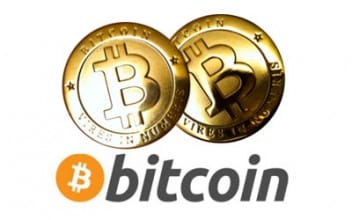The Problem(s) With Bitcoin

Because of the inherent secrecy of Bitcoins, it is difficult to solve crimes that involve it, and there is little or nothing in the way of legal protection for investors. Even among those for whom Bitcoin’s anonymity was a key selling point, such as users of the Silk Road, the recent cyber-attack on said black market website in which millions were stolen has robbed it of much of its credibility.
The authentication process with Bitcoin is also notoriously slow, due to the heavy levels of encryption and decryption required to process payments. This makes it highly unlikely that it will ever be adopted by retail outlets, who will be naturally reluctant to let customers walk out of the door with a product before payment has been authorized.
The other big problem with Bitcoin is its huge volatility, which makes it unfit for use as a mainstream currency. With price swings of up to 20% or 30% per day, retailers that accept it could be subject to huge losses if the price goes the wrong way. Basically unless they wish to get involved in the commodity trading business, most retailers would prefer not to take on the risk associated with accepting Bitcoin.
The stability of any economy is dependent on the ability of central banks to keep fluctuations in interest rates, inflation, and exchange rates, within an acceptably low range. Without this stability, consumers would be reluctant to spend money, which would have a hugely damaging effect on the economy.
What Next For Bitcoin?
So, it seems as though the writing may be on the wall for Bitcoin, with respected voices such as former Federal Reserve Bank examiner and current Boston University Professor Mark T. Williams predicting that prices will fall below $10 by mid-2014, and Saxo Bank co-CEO Lars Seier Christensen expressing serious doubts over whether it can ever be integrated with the financial mainstream.
Of course, with significant restructuring, regulation, and most likely re-programming, Bitcoin could be adapted into a usable currency. It does at least have one major alternative over other digital currencies, in that people have heard of it. However, it is likely that the structural problems associated with Bitcoin mean that if and when digital currencies do take off, it will be a more streamlined, transparent, and secure solution that will be the one to crack the mainstream.
Yet, if we can take one thing from the whole Bitcoin rollercoaster, it is that there appears to be a genuine desire to re-conceptualize the concept of currencies for the digital world. It’s worth bearing in mind, for instance, that Facebook wasn’t the first big social network – that honour belongs to MySpace, and we all know what happened to that. Like Bitcoin, MySpace was a disruptive technology that saw explosive growth initially, but bad publicity, structural, and programming issues were to spell its demise.
By contrast, Facebook wasn’t doing much that MySpace didn’t, it just managed to come across as being much safer, cleaner, and wasn’t beset by many of the issues that dogged MySpace. In order for a digital currency to pull off the same trick, it will have to get it right from the off, and there are currently more than 80 Bitcoin alternatives trying to grab a piece of the pie. However, is there a Facebook among them, or is it just a sea of Friendsters and Bebos?
In the next instalment, we will be looking at a selection of new digital currencies to assess whether any of them have what it takes to build on the promise of Bitcoin and enter the financial mainstream.
Tradersdna is a leading digital and social media platform for traders and investors. Tradersdna offers premiere resources for trading and investing education, digital resources for personal finance, market analysis and free trading guides. More about TradersDNA Features: What Does It Take to Become an Aggressive Trader? | Everything You Need to Know About White Label Trading Software | Advantages of Automated Forex Trading









































